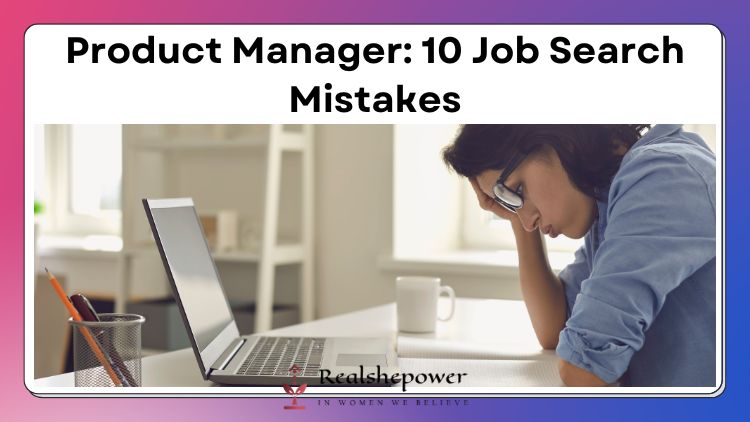How to Become a Product Manager: A Comprehensive Guide


Introduction
Are you fascinated by the idea of managing products from conception to launch? Do you enjoy working with teams and analyzing market trends? If you answered yes to both questions, then you might want to consider a career as a product manager. As a product manager, you will be responsible for developing and launching products that meet customer needs, while also ensuring they are profitable for your company.
In this article, we will provide you with a comprehensive guide on how to become a product manager. We will discuss the essential skills you need to have, the education and training requirements, and the steps you can take to land your first job in this exciting field.
Table of Contents
Essential Skills for Becoming a Product Manager
To become a successful product manager, you need to possess several essential skills. These skills include:
1. Strategic thinking
As a product manager, you will be responsible for developing and implementing product strategies that align with your company’s overall goals. To do this, you need to be able to think strategically and understand the market trends, customer needs, and competition.
2. Analytical skills
To develop successful products, you need to be able to analyze data and make data-driven decisions. You will need to collect and analyze customer feedback, market trends, and sales data to develop products that meet customer needs and generate revenue for your company.
3. Communication skills
Product managers work with cross-functional teams, including designers, developers, marketers, and sales teams. You need to be able to communicate effectively with each team member, share your vision, and ensure everyone is working towards the same goal.
4. Project management skills
Product managers need to be excellent project managers. You will be responsible for creating timelines, tracking progress, and ensuring everyone on your team is meeting their deadlines.
5. Leadership skills
As a product manager, you will be responsible for leading your team to success. You need to be able to motivate your team, set goals, and provide feedback to help everyone on your team grow and succeed.
Education and Training Requirements

Product managers come from a variety of educational backgrounds, but most have at least a bachelor’s degree in business, marketing, engineering, or a related field. Some employers prefer candidates with an MBA or other advanced degree.
To become a product manager, you can take several steps:
1. Gain relevant experience
Product managers often start their careers in related roles, such as project management or product development. By gaining experience in these roles, you can learn more about the product development process and develop the essential skills needed to become a successful product manager.
2. Take online courses
You can also take online courses to learn more about product management. Platforms like Coursera, Udemy, and LinkedIn Learning offer courses on product management, customer research, and product marketing.
3. Attend networking events
Attending networking events can help you connect with other product managers and professionals in related fields. You can learn more about the industry and gain insights into what skills and experiences are most valuable to employers.
4. Earn a certification
You can also earn a certification in product management. The Product Management Certificate (PMC) and Certified Product Manager (CPM) are two of the most popular certifications for product managers.
FAQs
Q1. What is the salary of a product manager?
A1. The salary of a product manager varies depending on factors such as location, industry, and experience level. According to Glassdoor, the average base salary for a product manager in the United States is $108,000 per year. However, this can range from $75,000 to over $150,000 per year.
Q2. What is the career growth trajectory for a product manager?
A2. Product management is a high-growth field, and there are many opportunities for career advancement. Some product managers go on to become senior product managers, directors of product management, or even chief product officers. Others may transition into related roles, such as marketing or business development.
Q3. What is the most challenging aspect of being a product manager?
A3. One of the most challenging aspects of being a product manager is balancing the needs of different stakeholders, such as customers, executives, and cross-functional teams. Product managers need to be able to navigate competing priorities and make difficult decisions that balance the needs of all parties involved.
Q4. Is a technical background necessary to become a product manager?
A4. While having a technical background can be helpful in some industries, it is not a requirement to become a product manager. Many successful product managers come from diverse backgrounds, such as marketing, business, design, or even liberal arts. What’s important is having a deep understanding of the product and the ability to collaborate effectively with technical teams.
Q5. What are some common mistakes that new product managers make?
A5. One common mistake that new product managers make is trying to do everything themselves. It’s important to learn to delegate and trust your team to execute on tasks. Another mistake is not prioritizing effectively and getting bogged down in details instead of focusing on the big picture. It’s also important to be open to feedback and adapt to changes in the market or product.
Q6. What are some resources for aspiring product managers?
A6. There are many resources available for those looking to become product managers, including:
– Online courses and certifications, such as those offered by Product School, General Assembly, or Coursera.
– Industry conferences and networking events, such as ProductCon, Mind the Product, or ProductTank.
– Books and blogs by experienced product managers, such as “Inspired” by Marty Cagan, “Cracking the PM Interview” by Gayle McDowell, or the blog “A Good Product Manager”.
– Product management tools and software, such as Aha!, Trello, or Jira.
By leveraging these resources, you can gain valuable insights and skills to help you succeed as a product manager.
Conclusion
Becoming a product manager can be a rewarding and fulfilling career choice for those with a passion for product development and a knack for strategic thinking. By developing the essential skills and gaining relevant experience, you can position yourself for success in this exciting and rapidly growing field.
To recap, here are the key takeaways from this article:
- Essential skills for becoming a product manager include strategic thinking, analytical skills, communication skills, project management skills, and leadership skills.
- Education and training requirements for product managers vary, but most have at least a bachelor’s degree in business, marketing, engineering, or a related field.
- To become a product manager, you can gain relevant experience, take online courses, attend networking events, and earn a certification.
- Product management is a high-growth field with many opportunities for career advancement.
We hope this article has provided you with valuable insights into how to become a product manager. Remember, with hard work, dedication, and the right skills, you can succeed in this exciting and rewarding field.
10 Common Mistakes to Avoid in Your Product Manager Job Search

In this article, we will discuss the 10 common mistakes to avoid in your product manager job search. By avoiding these mistakes, you can increase your chances of landing your dream job.
How to Use Open-Source Big Data Tools for Business Intelligence and Analytics

In this article, we’ll explore the basics of open-source big data tools for business intelligence and analytics. We’ll cover the most popular tools and how they work, how to use them for data processing
The Networking Guide to Breaking Barriers and Achieving Success

According to a survey by Lean In and McKinsey, women who have a mentor or sponsor are more likely to receive a promotion or be hired for a higher-level job. So, by building a network of supportive people, you … read more
You can now write for RSP Magazine and be a part of the community. Share your stories and opinions with us here.
